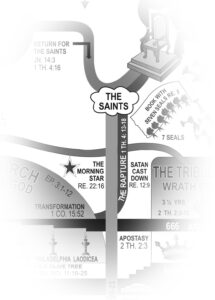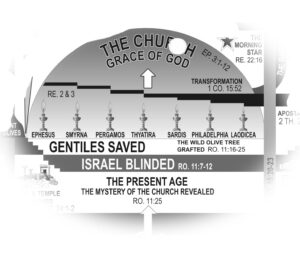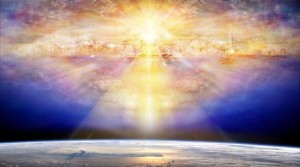 ‘After These Things’ Chapter 4.4 – The Rapture
‘After These Things’ Chapter 4.4 – The Rapture
From our book ‘After These Things – Summaries of John Nelson Darby’s Papers on Prophecy – and more…’ Compiled by Daniel Roberts. For more about this book click on the picture or CLICK HERE
The Truth and Reality of Resurrection
A summary of the Fourth Lecture by J N Darby on the Present Hope of the Church – Geneva 1840 entitled ‘The First Resurrection – or The Resurrection of the Just’.
The Truth and Reality of Resurrection
What the Greeks Taught – Resurrection vs Reincarnation
The Resurrection of the Just (or The Resurrection of the Church Apart)
The Truth and Reality of Resurrection
 The resurrection of Christ was the foundation of the preaching of the apostles, In Acts 1:22, they said, ‘One must be with us a witness of his resurrection’. Peter said, ‘This Jesus hath God raised, whereof we all are witnesses.’ (v.32).
The resurrection of Christ was the foundation of the preaching of the apostles, In Acts 1:22, they said, ‘One must be with us a witness of his resurrection’. Peter said, ‘This Jesus hath God raised, whereof we all are witnesses.’ (v.32).
Resurrection is therefore at the core of Christianity: it was the seal of Christ’s ministry. Romans 1:4 says He was, ‘declared to be the Son of God with power, according to the spirit of holiness, by the resurrection from the dead[1]’ – The Jews had no difficulty – they accepted a general resurrection but did not understand resurrection from among the dead. Resurrection links our hopes to Christ and the whole church, to the counsels of God in Christ; it makes us understand that we are entirely set free in Him. We are united to Him by the Holy Spirit, so He is also the source of our strength: we can glorify Him now. We are introduced into a new creation: the power of God places us, in the second Adam, beyond the sphere of sin, of Satan, and death.
‘Buried with him in baptism, wherein also ye are risen with him through the faith of the operation of God, who hath raised him from the dead.’ (Colossians 2:12). Our union with Jesus raised gives us acceptance with God. We ought to see ourselves already as beyond the tomb.
The word of God is simple, clear, and convincing; but preconceived ideas often rob us of its natural sense. We have habits of thinking apart from Scripture. Sadly, prejudices and human teachings have taken the place of the word of God, and the power and expectation of the resurrection have ceased to be the habitual state of the church.
What the Greeks Taught – Resurrection vs Reincarnation
In Athens, Paul announced, among the learned Gentiles, the doctrine of resurrection (Acts 17:18-30). This was the stumbling-stone of their carnal wisdom. Socrates, Plato and other philosophers believed, after a fashion, in the immortality of the soul (metempsychosis or reincarnation). The idea of the immortality of the soul, although recognised in Luke 12:5 and 20:38, is not, in general, a gospel topic[2].
When these scientifically minded men heard of the resurrection of the dead, they mocked. An unbeliever can discuss immortality; but if he hears about the resurrection of the dead, he turns the subject into derision. And why? Because in talking of the immortality of the soul, he may exalt himself and elevate his self-importance and power.
God can reconstitute a body that has been reduced to dust into a living and glorified man because nothing is hidden from His power. The leading truth, however, is the resurrection of the body, not the immortality of the soul.
The Two Resurrections
The Lord says, ‘The hour is coming, in the which all that are in the graves shall hear his voice, and shall come forth; they that have done good, unto the resurrection of life; and they that have done evil, unto the resurrection of damnation.’ (John 5:28)
Paul says, ‘There shall be a resurrection of the dead, both of the just and unjust’ (Acts 24:15). But they are not the same, though accomplished by the same power.
The resurrection of the just[3] is altogether distinct from the resurrection of the unjust. The resurrection of the just, which we await, precedes the Millennium. It takes place at the ‘Rapture’. The church will participate in the coming of Christ to reign. There will be a resurrection of life for those who have been already quickened in their souls; and a resurrection of judgment for those who have rejected Jesus.
We must not confuse the resurrection of the just with that of the unjust, and the judgment before the Great White Throne. The resurrection of the unjust will not take place until after the Millennium.
None of the passages concerning the resurrection speak of a simultaneous rising of just and unjust; and those which refer to the resurrection of the just always talk of it as a distinct thing. All will rise. There will be a resurrection of the just and a resurrection of the unjust, but they will not take place together[4].
Because Jesus said that those who are in the graves shall hear his voice, it may be alleged that the wicked and the just will rise together. But three verses earlier it said, ‘they that hear shall live.’ So evidently, there is a time of quickening and a time of judgment; there is a period during which souls are quickened, and a period when bodies shall be raised.
‘That I may know him, and the power of his resurrection, and the fellowship of his sufferings, being made conformable unto his death; if by any means I might attain unto the resurrection of the dead’ (Phil 3:10-11). Paul would not speak thus if the good and bad rose together, and in the same manner. This resurrection from among the dead is the first resurrection that Paul had in mind. The resurrection from among the dead was a thing that concerned the church exclusively. We should say, like the apostle, ‘I press toward the mark for the prize of the high calling of God in Christ Jesus’ (v.14).
The Resurrection of the Just (or The Resurrection of the Church Apart)
In the work of making alive or vivification, the Father and Son act together. Those to whom life is given are put into communion with the Father and Son. The bodies of the children of God will participate in the life that has already been communicated to their souls (the life of Christ Himself).
Several scriptures bear on this, making this resurrection clear to all:
- 1 Corinthians 15 sets forth very clearly the connection which exists between the coming of Christ and the resurrection of the dead. The sequence of events is precise.
- Christ is become the firstfruits of them that slept’ (v. 20).
- The trumpet shall sound, and the dead shall be raised incorruptible (v.52).
- We shall be changed (v.52).
- This mortal shall have put on immortality (v 54).
- Death is swallowed up in victory (v 54).
The Appearing of Christ will therefore take place before the end;
- Also, 1 Thessalonians 4 – The Lord himself shall descend from heaven (v. 16).
- With a shout, with the voice of the archangel, and with the trump of God (v. 16).
- The dead in Christ shall rise first(v. 16).
- We which are alive and remain shall be caught up together with them in the clouds (v. 17)
- We shall meet the Lord in the air (v. 17).
- So shall we ever be with the Lord. (v. 17).
God is the ‘God who raiseth the dead’ (2 Corinthians 1:9) – or ’quickeneth the dead’ (Romans 4:23-25). We are called upon to believe that the resurrection of Jesus is the power, or the efficacy, of our justification. The resurrection of Jesus was the great proof.
In Colossians 2:12, it says ‘Buried with him in baptism, wherein also ye are risen with him through the faith of the operation of God, who hath raised him from the dead.’ The Church is raised now because Christ is raised as its Head.
Our resurrection is the consequence of the abiding of the Holy Spirit in us ‘if the Spirit of him that raised up Jesus from the dead dwell in you, he that raised up Christ from the dead shall also quicken your mortal bodies by his Spirit that dwelleth in you’ (Romans 8:11). It therefore is on account of the Holy Spirit who is in us, that we shall be raised. The presence of the Holy Spirit in the church is that which characterises our position before God.
– The world does not receive the Holy Spirit, ‘because it seeth him not, neither knoweth him,’ (John 14:27) – an essential difference.
What to do?
‘Our body is the temple of the Holy Ghost’ (1 Corinthians 6:19). Therefore, our souls are filled, or at least it ought to be, with the glory of Christ. Our bodies will be raised through the power of the Holy Spirit who dwells in us. This can never be said of the wicked.
The Judgment of the Wicked
Scripture presents two acts of Christ as the attributes of His glory:
- to make alive.
- to judge.
‘All who are in the tombs shall hear his voice, and shall go forth; those that have practised good, to resurrection of life, and those that have done evil, to resurrection of judgment.’ (John 5:28 Darby).
All judgment is entrusted to Christ, so that all, even eventually the wicked, should honour the Son, confessing Him Lord to the glory of God the Father (see Philippians 2:11).
Jesus was treated shamefully down here. Therefore, the way of obliging the wicked to recognise the rights of Jesus is place the process of judgment in the hands of Jesus Himself. The Father does not judge: it was not He who was wronged, but the Son. For the wicked, the time of the judgment will be at the Great White Throne.
Those who Sleep in Jesus
‘Christ has become the firstfruits of them that slept…. They that are Christ’s shall rise at his coming. Then cometh the end, when he shall have delivered up the kingdom to God, even the Father’ (1 Corinthians 15:23). When He comes, He will take the kingdom; at the end, He will deliver it up. The Appearing of Christ will therefore take place before the end; it will be for the destruction of the wicked. He will come to purify His kingdom.
‘Them also which sleep in Jesus will God bring with him’; ‘and the dead in Christ shall rise first.’ (1 Thessalonians 4:14-16). It is the fulfilment of our hopes; the fruit of our justification and the consequence of the Holy Spirit dwelling in us.
The resurrection of the just will be the consummation of our happiness; after having given life to our souls, He will give life to our bodies. We never read in the word of God of glorified spirits, but always of glorified bodies. There is the glory of God, and the glory of those who will be raised.
In the Lord’s answer to the Sadducees, He said, ‘They which shall be accounted worthy to obtain that world, and the resurrection from the dead, neither marry, nor are given in marriage: neither can they die any more: for they are equal unto the angels[5]; and are the children of God, being the children of the resurrection’. (Luke 20:36). This proves a resurrection which concerns the children of God alone – we have a title in sonship.
Conclusion
Darby concludes, ‘ The knowledge of this truth, by the power of Christ, will strengthen us in our hearts. For this knowledge is that to which the scripture applies the word ‘perfection.’ (i.e. being fit, or qualified for an office). Christ was thus made perfect as to His state and position before God; so we, ourselves, are now made perfect by faith.
‘May our bodies, souls, and spirits, be preserved blameless until the coming of our Well-beloved! May the truth of the resurrection of the church become bound up, in our minds, with all the precious truths of our salvation.’
[1] νεκρῶν/nekron/Strong-3498 – this is plural so indicates ‘dead persons’; or as in Mark 9:9, – f’rom among the dead.
[2] In the expression ‘Brought life and immortality to light’ (2 Timothy. 1:10), ‘immortality’ signifies the incorruptibility of the body and not the immortality of the soul. The Saviour adds, ‘Neither can they die any more … for they are the children of God, being the children of the resurrection.’
It was just when the coming of Christ was denied in the church or at least began to be lost sight of, that the doctrine of the immortality of the soul came into displacing that of the resurrection about the time of Origen (d. c253).
[3] JND refers to this as ‘the resurrection of the church apart’
[4] Note that in scripture, as in Darby’s writings the term ‘resurrection of (or from among) the dead’ refers to Christians who have died in Christ – or who have fallen asleep, their resurrection is at the resurrection of the just, (or the resurrection of the church apart).
[5] Note they do not become angels, as some would teach.





